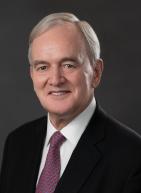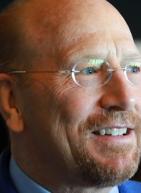Europe is in the midst of a once-in-a-lifetime crisis. Every European knows what happened when financial markets seized up in the dark years of the 1930s. It is not an exaggeration to say that it could happen again if governments fail to act. We are not predicting that it will happen, but it is critical to know that this is what is at stake.
Trust among financial institutions is disappearing and there are risks that fear will spread more widely. Turmoil in financial markets must be stopped before it causes major damage to the real economy. The savings of hundreds of millions of Europeans are directly threatened. If the turmoil produces credit market paralysis, jobs and businesses will be destroyed on a massive scale. A further weakening of the real economy would put more loans at risk and create a vicious cycle of falling asset prices, deteriorating ability to repay loans, and diminishing credit flows.
Actions by US policymakers are welcome, but they are not sufficient. Decisive policy action is required in Europe as well.
Policy spillovers: European-level actions to supplement and coordinate national actions
The US authorities learned last week that saving one bank at a time won’t work; a systemic crisis demands a systemic response.
In Europe, saving one bank at a time means either a rescue effort mounted by one nation, despite important spillovers to neighbouring countries, or last-minute improvised coordination and agreement about fiscal burden sharing. The national responses and ad-hoc cooperative efforts to date have been useful. Yet interdependence among European banks is too deep and too wide-spread for national responses or case-by-case coordination to be enough. Each national policy intervention and each cooperative intervention by a small number of countries can have unpredictable implications for other European nations. It is critical that national authorities sit together and coordinate their responses, developing Europe-wide solutions where appropriate.
Now is the time to act while the situation still appears manageable. Last week’s events in the US demonstrate that financial crises do not evolve smoothly and predictably. One unexpected event can trigger a cascade of failures and panics that become increasingly difficult to control.
Solutions
Many solutions will be part of the answer. In the US, dealing with the immediate crisis requires restoring liquidity to money and credit markets, and creating the conditions for the resumption of the securitisation of prime mortgages and other illiquid but sufficiently homogeneous and transparent assets. In Europe, the key problem is high leverage among the internationally active large banks. Hence the EU contribution must be centred on a recapitalisation of the banking sector, through the injection of public equity or through mandatory debt-to-equity conversions. This has to be done at the EU level (e.g. through the EIB). The current approach of rescuing one institution after another with national funds will lead to a Balkanisation of the European banking sector. Agreeing a harmonised level for deposit insurance would also be important.
To prevent future crises of this nature, regulation of the European financial markets and institutions at the European level will also be required.
The problem is not a lack of understanding of how to stop financial crises. The problem is a lack of political will.
Unless European leaders immediately unite to address this crisis before it spirals out of control, they may find themselves fighting over how best to salvage the aftermath.
List of Signers as of 22 October 2008; (466 including the 10 first signers)
Viral Acharya, London Business School
Stefania Albanesi, Columbia University
Rui Albuquerque, Boston University
Matteo Arena, Marquette Univesity
Marco Arnone, Catholic University of Milan
Guido Ascari, Università di Pavia
Anna Aubanell Jubany, Universitat Autònoma de Barcelona
Ciro Avitabile, Università Federico II, Napoli
Rym Ayadi , Centre For European Policy Studies
Harald Badinger, Europainstitut, Department of Economics, Wirtschaftsuniversität Wien
Giorgio Barba Navaretti , University of Milan
Lluís Barbé, Universitat Autònoma de Barcelona
Olivier Bargain, University College Dublin
Giorgio Basevi, Università di Bologna
Severgnini Battista, Humboldt University Berlin
Thomas Beissinger, University of Hohenheim and IZA, Bonn
Ansgar Belke, University of Duisburg-Essen, Chair for Macroeconomics and Director of the Institute for Business and Economic Studies
Luca Beltrametti, Università di Genova
Sergio Beraldo, Università Federico II, Napoli
Eduard Berenguer, Universitat de Barcelona
Rolf Bergs, Policy Research & Consultancy - Bergs u. Issa Partnership Co.
Joerg Beutel, Konstanz University of Applied Sciences
Hanna Binz-Hottenrott, K.U.Leuven, Centre for European Economic Research
Peter Birch Sorensen, University of Copenhagen
Bernard BOBE, ENSCP, ParisTech (Paris Institute of Technology)
René Böheim, Johannes Kepler University Linz
Frank Bohn, Radboud University Nijmegen
Andrea Boitani, Università Cattolica, Milano
Guido Bolliger, Olympia Capital Management
Pierluigi Bologna, Financial Attaché, Embassy of Italy, Washington D.C.
Manfred Borchert, University of Muenster
Silvio Borner, University of Basel
Maurizio Bovi, ISAE
Sergio Briguglio, ENEA
Olivier Brossard, Toulouse University
Agar Brugiavini, Università di Venezia
Marius Brülhart, University of Lausanne
Ferran BRUNET, Universitat Autònoma de Barcelona
Hans-Peter Brunner, Asian Development Bank
Andreas Buehn, Technische Universitaet Dresden
Andreas Buehn, Technische Universitaet Dresden
Walter Buhr, University of Siegen
Michael Burda, Humboldt University Berlin
Monika Bütler, Universität St. Gallen
Xaver-Christof Büttner, University Of Applied Sciences Coburg
Rolf Caesar, Prof. Dr., University of Hohenheim, Germany, Institute of Economics
Lars Calmfors, Institute for International Economic Studies, Stockholm University and Swedish Fiscal Policy Council
Giacomo Calzolari, Department of Economics, University of Bologna & CEPR
Uwe Cantner, Friedrich Schiller Universiyt Jena
Wendy Carlin, University College London
Carlo Carraro, University of Venice and FEEM
Dieter Cassel, Mercator School of Management, University of Duisburg-Essen, Duisburg
Lorenzo CASSI, Université Paris 1 - Panthéon Sorbonne
Micael Castanheira, ECARES
Maurizio Catino, Università Bicocca, Milano
Matteo Cervellati, University of Bologna
Riccardo Cesari, Università di Bologna
Giovanni Cespa, Department of Economics, Queen Mary University of London
Edouard Challe, Ecole Polytechnique
Eric Chaney, Chief Economist, AXA
Chia-Ying Chang, Victoria University of Wellington
Daniele Checchi, Università Statale, Milano
Natalie Chen, University of Warwick
Bruno Chiarini, University of Naples
Mag. Dr. Leo Chini, Wirtschaftsuniversität Wien
Barry Chiswick, University of Illinois at Chicago and IZA--Institute for the Study of Labor
Innocenzo Cipolletta, Università di Trento
Bart COCKX, Ghent University and Université catholique de Louvain
Irwin Collier, Freie Universität Berlin, John-F.-Kennedy-Institute for North American Studies
Jonathan Conning, Hunter College and The Graduate Center, CUNY
Gurdgiev Constantin, Trinity College, Dublin (Adjunct) & NCB Stockbrokers
Maurizio Conti, Università di Genova
fabrizio coricelli, university of siena
Diego Corrado, Università Bocconi, Milano
Tony Curzon Price, openDemocracy.net
Astrid Dannenberg, ZEW
Jean-Pierre Danthine, University of Lausanne and Swiss Finance Institute
Francesco Daveri, Università di Parma
Giuseppe De Arcangelis , Sapienza Università di Roma
Paul De Grauwe, Katholieke Universiteit Leuven
Guillermo de la Dehesa, CEPR Chairman
Hans Degryse, Tilburg University
Daniela Del Boca, Università di Torino
JACQUES DELPLA, Conseil d'Analyse Economique, Paris
Mathias Dewatripont, ecares, universite libre de bruxelles and cepr
Marco Di Marco, Italian National Statistical Institute
Herzer Dierk, Johann Wolfgang Goethe University Frankfurt
Barbara Dietz, Institute for Eastern European Studies, Regensburg
Ralitza Dimova, Brunel University
Ingolf Dittmann, Erasmus Universiteit Rotterdam
Sabien Dobbelaere, Vrije Universiteit Amsterdam
Juan J. Dolado, Universidad Carlos IIII
Sylke Dr. Behrends, Universität Oldenburg
Axel Dreher, Georg-August University Göttingen
Andre Drost, University of Cologne
Gerard DUCHENE, University Paris-Est
Gregory Duncan, University of California-Berkeley
Dirk Ehnts, University of Oldenburg
Thomas Eichner, University of Bielefeld
Roland Eisen, JWGoethe University
Federico Eisler, Merrill Lynch
Schlicht Ekkehart, University of Munich
Thomas Elsaesser, University of Amsterdam
michael emerson, CEPS
Gunther Engelhardt, University of Hamburg
Philipp Engler, Freie Universität Berlin
Gil Epstein, Bar-Ilan University
Burkhard Erke, University of Applied Sciences Gelsenkirchen
Mathias Erlei, Clausthal University of Technology
Federico Etro, Università Bicocca, Milano
Malte Faber, University of Heidelberg
NATALIA FABRA, UNIVERSIDAD CARLOS III DE MADRID AND CEPR
Stefano Fassina, già Economist, International Monetary Fund
Carlo Favero, Università Bocconi, Milano
Jacques Fayette, Università di Lione
Ernst Fehr, Institute for Empirical Research in Economics, University of Zurich
Hans Fehr, Universität Würzburg
Ralf Fendel, WHU - Otto Beisheim School of Management
Antonio J Fernos, Interamerican University of Puerto Rico
Francesco Ferrante, Università di Cassino
Stefano Ficco, Europe Economics, London
Riccardo Fiorentini, Università di Verona
Harry Flam, IIES, Stockholm University
Elsa Fornero, Università di Torino
Cecilia Frale, CEPS
Marco Francesconi, University of Essex
Joseph Francois, CEPR and Johannes Kepler University of Linz
Guenter Franke, Universität Konstanz
Markus Fredebeul-Krein, Aachen University of Applied Scinece
Ralph Friedmann, Universitaet des Saarlandes
Ralph Friedmann, Universitaet des Saarlandes
Barbara Fritz, Freie Universität Berlin
Vincenzo Galasso, Università Bocconi, Milano
Marzio Galeotti, Università Statale, Milano
Gillian Garcia, IMF, retired
Vihar Georgiev, Sofia University "St. Kliment Ohridski"
Vihar Georgiev, Sofia University "St. Kliment Ohridski"
Marc Giannoni, Columbia University
Olga Gil, I sing on personal grounds, not affiliation (which is Banco Español de Crédito, BANESTO)
Mario Gilli, Università Bicocca, Milano
Labartino Giovanna, Bocconi University Milan
Bertola Giuseppe, Università di Torino
Marek Góra, Warsaw School of Economics
Reijer Groenveld, Abn Amro
Loek Groot, Utrecht University School of Economics
Volker Grossmann, University of Fribourg
Josef Gruber, Fernuniversität Hagen
Karl-Dieter Grüske, University-Professor of Public Finance and President of University of ERlangen-Nürnberg
Selen S Guerin, CEPS
Maria Cecilia Guerra, Università di Modena e Reggio Emilia
Elisabeth Gugl, University of Victoria, Canada
Luigi Guiso, European University Institute, Firenze
Sergei Guriev, New Economic School
Thorvaldur Gylfason, University of Iceland
Hendrik Hakenes, University of Hannover
László Halpern, IEHAS Hungary
Gerd Hansen, University of Kiel
joop hartog, Universiteit van Asterdam
Kenneth Harttgen, University of Göttingen
John Hassler, IIES, Stockholm University, Sweden
Nikolaus Hautsch, Humboldt-Universität zu Berlin
Peter Havlik, The Vienna Institute for International Economic Studies (wiiw)
Moshe Hazan, Hebrew University and CEPR
Burkhard Heer, Free University of Bolzano, Italy
Burkhard Heer, Free University of Bolzano, Italy
Burkhard Hehenkamp, Universität zu Köln
Ralph Heinrich, United Nations Economic Commission for Europe
Rodolfo Helg, Università Cattaneo-LIUC
Andrew Henley, Swansea University, UK
Almas Heshmati, Seoul National University
Konrad A. Hillebrand, Hochschule Fulda, Germany
Hanns Günther Hilpert, Stiftung Wissenschaft und Politik
Bersant Hobdari, Copenhagen Business School
Steffen Hoernig, Universidade Nova de Lisboa
Peter Holmes, University of Sussex
Jens Hölscher, University of Brighton
Patrick Honohan, Trinity College Dublin
Oliver Hossfeld, Handelshochschule Leipzig
Jochen Hundsdoerfer, Freie Universität Berlin
Jennifer Hunt, McGill University
Andrea Ichino, Universita' di Bologna
Gregorio Impavido, IMF
daniela iorio, universitat autonoma de barcelona
Marc Ivaldi, Toulouse School of Economics
David Jaeger, Graduate Center, City University of New York
Tullio Jappelli, Università Federico II, Napoli
Olivier Jeanne, Johns Hopkins University
Uwe Jensen, Institute for Statistics and Econometrics, University of Kiel
Klaus Dieter John, Chemnitz University of Technology
Alain Jousten, University of Liege
Pramod (Raja) Junankar, University of Western Sydney and IZA, Bonn
Stefan Jungblut, University of Paderborn
Stepan Jurajda, CERGE-EI
LOUKA KATSELI, PROF.OF ECONOMICS UNIVERSITY OF ATHENS-STATE MP PASOK
Wolfgang Keller, University of Colorado, NBER and CEPR
Georg Kirchsteiger, ECARES, Univerite Libre de Bruxelles
Guy Kirsch, Université de Fribourg
Guy Kirsch, Université de Fribourg
Prof. Dr. Roland Kirstein, Otto-von-Guericke University, Magdeburg, Germany
Stephan Klasen, University of Goettingen
Alexander Klein, KfW Bankengruppe
Anders Klevmarken, Uppsala University
Stefan Klößner, Saarland University
Christoph Knoppik, University of Regensburg
Alexander Koch, University of Aarhus
Ulrich Koester, University of Kiel, Germany
Robert Kollmann, ECARES, Université Libre de Bruxelles and Université Paris XII
Jozef Konings, Faculty of Economics and Business, Catholic University of Leuven
Christian Koziol, WHU - Otto Beisheim School of Management
Helmut Kramer, WIFO Austrian Institute of Economic Research
Matthias Krause, German Development Institute (Deutsches Institut für Entwicklungspolitik - DIE)
Tim Krieger, University of Paderborn
Alexander Kritikos, GfA
Jens Krueger, Friedrich-Schiller-University Jena
Hans-Guenter Kruesselberg Prof. Dr., Philipps- University of Marburg, Germany
Lutz Kruschwitz, Freie Universitaet Berlin
Gabriella La Rocca, Università di Roma 3
Mario Lackner, JKU Linz
Frauke Lammers, WHU - Otto Beisheim School of Management
Michael Landesmann, Vienna Institute for International Economic Studies (wiiw) and Johannes Kepler University Linz
Philip Lane, Trinity College Dublin and CEPR
Mariangela Lavanga, University of Amsterdam
Edwin Le Heron, Sciences Po Bordeaux
Marco Leonardi, Università Statale, Milano
Riku Leppanen, European Commission
Robert Leu, University of Bern
Shi Li , Beijing Normal University
Nuno Limao, University of Maryland
Stefania Lionetti, University of Lugano
Félix López, EOI Business School, Madrid
Romanese Lorenza, CEPS
Dieter Lukesch, Faculty of Economics and Statistics, University Innsbruck
Thomas Lux, University of Kiel and Kiel Institute for the World Economy
Alfredo Macchiati, Ferrovie dello Stato
Diane Macunovich, University of Redlands, California
Per Kongshøj Madsen, Aalborg University, Centre for Labour Market Research
Andreas Maier, Verein für Socialpolitik
Giannetti Mariassunta, Stockholm School of Economics
Giuseppe Marotta, Università di Modena e Reggio Emilia
Luis B. Marques, Johns Hopkins University - SAIS
Gerald Marschke, Harvard University and University at Albany, SUNY
Philippe Martin, Paris School of Economics
Jose Luis Martinez Parra, Universitat Autonoma de Barcelona (Spain)
Anna Maria Mayda, Georgetown University and CEPR
Christopher Meissner, University of California, Davis
Jacques Melitz, Heriot-Watt University
Antje Mertens, Berlin School of Economics
Ingolf Metze, Institut für Finanzwisssenschaft - Universität Münster
Wolfgang Meyer, Leibniz Universität Hannover
Raoul Minetti, Michigan State University
Raoul Minetti, Michigan State University
Patrick Minford, Cardiff University
Jochen Moebert, Darmstadt University of Technology
Tommaso Monacelli, Università Bocconi, Milano
Aldo Montesano, Università Bocconi, Milano
Franco Mosconi, Università di Parma
Peter Moser, Hochschule für Technik und Wirtschaft HTW Chur
Mojmir Mrak, Faculty of Economics, University of Ljubljana
John Muellbauer, Nuffield College, University of Oxford
Gerald Müller, Commerzbank, Private Banking
Gilberto Muraro, Università di Padova
Tommaso Nannicini, Università Bocconi, Milano
Peter Neary, University of Oxford and CEPR
Reinhard Neck, Department of Economics, Klagenfurt University
Alberto Niccoli, Università Politecnica delle Marche Ancona Italy
Alexander Nuetzenadel, University Frankfurt (Oder)
Luca Nunziata, University of Padua
Kevin O'Rourke, Trinity College Dublin
Peter Oberender, Ordinarius of Economics
peter o. oberender, fullprofessor at university of Bayreuth (germany)
Maurice Obstfeld, University of California, Berkeley
Marco Onado, Bocconi University
Gerhard Orosel, University of Vienna
Jorge Padilla, LECG
Marco Pagano, Università Federico II, Napoli
Franz Palm, Maastricht University
Fausto Panunzi, Università Bocconi
Karl-Heinz Paqué, Professor of International Economics, Otto von Guericke University Magdeburg, Germany
M. Daniele Paserman, Boston University
Antonio Pasini, Università di Siena
Andreas Peichl, IZA Bonn
Loriana Pelizzon , Research Centre SAFE Systemic Risk Lab and Goethe University Frankfurt
Eugenio Peluso, Università di Verona
Luca Pensieroso, Université Catholique de Louvain
George Perendia, London Metropolitan University
Dario Perkins, ABN AMRO
enrico perotti, Univ Amsterdam
Avinash Persaud, Intelligence Capital Limited
Hans-Balz Peter, Ethik und Wirtschaftswissenschaft, Universität Bern
Hans-Georg Petersen, University of Potsdam and DIW Berlin
Alessandro Petretto, Università di Firenze
Thomas Philippon, New York University and Paris School of Economics
Ilaria Piemonte, UBI Pramerica SGR
Giandomenico Piluso, Università di Siena
Jorn-Steffen Pischke, London School of Economics
Mariacristina Piva, Universita' Cattolica, Piacenza
Michele Polo, Università Bocconi
Pedro Portugal, Universidade Nova de Lisboa
Jean-Christophe Poutineau, Université de Rennes 1
Alberto Franco Pozzolo, Università degli Studi del Molise
Alexander Prof. Dr. Dr., Bayreuth University
Claudia Prof. Dr. Löhnig, Anhalt University of Applied Sciences, Bernburg, Germany, Professor in Eonomics
Luigi Prosperetti, Università Statale di Milano
Josef Puhani, Ludwigshafen University of Applied Sciences
Patrick Puhani, Leibniz Universität Hannover
Marco Raberto, Reykjavik University
Giorgio Ragazzi, Università di Bergamo
Raul Ramos, AQR-IREA (University of Barcelona)
Xavi Ramos, Universitat Autonoma de Barcelona
Fabio Ranchetti, Università di Pisa
Paul Raschky, University of Innsbruck
Attila Ratfai, Central European University
Morten Ravn, European University Institute
Assaf Razin Razin, Tel Aviv University
Günther Rehme, Humboldt University Berlin
Günther Rehme, Humboldt University Berlin
Stephan Reichert, Universität Trier
Helene Rey, London Business School, CEPR and NBER
Rudolf Richter, Universitaet des Saarlandes, Saarbruecken, Germany
Christoph Riechmann, Frontier Economics Ltd.
Alessandro Rigoni, Fondazione Nord Est
Ulf Rinne, IZA
Frédéric Robert-Nicoud, LSE
Nuria Rodriguez Planas, Universitat Autònoma de Barcelona, IZA, and FEDEA
Hajo Romahn, Gerhard Weisser-Institut, Ruhr-Universität Bochum
Michael Roos, University of East Anglia, School of Economics
Andrew Rose, UC Berkeley
Gianpaolo Rossini, Università di Bologna
Prof. Dr. Heinz Rothgang, University of Bremen
Kurt W. Rothschild, WIFO
Ralph Rotte, Institute of Political Science, RWTH Aachen University
Horst Rottmann, University of Applied Sciences Amberg-Weiden
Riccardo Rovelli, Università di Bologna
Dirk Rübbelke, CICERO
Stephan Rudolph, Technische Universität Dresden
Giovanni Russo, University of Trieste
Martin Ryan, University College Dublin
Albert Saiz, The Wharton School - University of Pennsylvania
Enrico Santarelli, Università di Bologna
Paola Sapienza, Northwestern University
Claudio Sardoni, Università La Sapienza, Rome
Lucio Sarno, University of Warwick
Domenico Scalera, Università del Sannio, Italy
Dorothea Schäfer, DIW Berlin
Mark Schelker, University of Fribourg
Prof. Dr. Wolfgang Scherf, Justus-Liebig-Universität Gießen
Andreas Scheuerle, DekaBank
Andreas Scheuerle, DekaBank
Maurice Schiff, World Bank
Christian Schiller, International Monetary Fund
Michael Schlander, Institute for Innovation & Valuation in Health Care (InnoVal-HC)
André Schmidt, Universität Witten/Herdecke
Matthias Schmidt, Leipzig University
Norma Schmitt, Europa Universität Viadrina Frankfurt
Wiebke Schmoldt, Ruhr-Universität Bochum
Mario Schnalzenberger, University of Linz
Nicole Schneeweis, Johannes Kepler University Linz
Hilmar Schneider, IZA, DIW
Marc Schneider, Free University of Berlin and IZA, Bonn
Marko Thomas Scholz, Ruprecht-Karls-Universität Heidelberg
Philipp Schorn, University of Bern
Mechthild Schrooten, Hochschule Bremen und DIW Berlin
Laurence Scialom, University Paris Ouest Nanterre la Défense, Research Center : EconomiX
Alessandro Sciamarelli, European Mortgage Federation
Paul Seabright, Toulouse School of Economics
Steffen Sebastian, University of Regensburg
Andrea Serafino, HSBC Bank Plc
Nicholas Shunda, University of Redlands
Anne Sibert, Birkbeck, University of London
Tapen Sinha, ITAM, Mexico and University of Nottingham, UK
Georges SIOTIS, Universidad Carlos III Madrid
Marko Skreb, Former Croatian National Bank Governor
Tilman Slembeck, Universität St.Gallen
peter sloane, swansea university
Christian Smekal, Professor of Public Economics and Public Finance at the University of Innsbruck, Austria
Henri Sneessens, Université catholique de Louvain
Francesco Sobbrio, IMT Lucca Institute for Advanced Studies
Eva Soebbeke, University of Goettingen, Germany
Luca Solari, Università Statale, Milano
Lina Song, Nottingham University
Bent Sorensen, University of Houston
Peter Spahn, University of Hohenheim, Stuttgart, Germany
Luigi Spaventa, University of Rome
David Stadelmann, Universität Freiburg (Schweiz)
Stan Standaert, University of Mons
Erling Steigum, Norwegian School of Management
Richard Sturn, University of Graz
Uwe Sunde, University of St.Gallen
Bernd Süssmuth, TUM Munich University of Technology
Alan Sutherland, University of St Andrews
Jan Svejnar, University of Michigan and CERGE-EI
Massimiliano Tani, Macquarie University
Aysit Tansel, Middle East Technical University
Alan Taylor, University of California, Davis
Piero Tedeschi, Università Cattolica di Milano
Stavros Thomadakis, Economics, University of Athens
Gunther Tichy, OEAW, WIFO
Cedric Tille, Graduate Institute for International and Development Studies
Patrizio Tirelli, Università Bicocca, Milano
Gianni Toniolo, Duke University e LUISS, Roma
Juan Toro, Instituto de Empresa Business School
Hans-Michael Trautwein, University of Oldenburg
Ugo Trivellato, Università di Padova, IZA, CESifo
Leonello Tronti, Università di Roma Tre
Panos Tsakloglou, Athens University of Economics and Business
Jiong Tu, IZA; McMaster University
Gianfranco Tusset, University of Padua
Karen Helene Ulltveit-Moe, University of Oslo
Carsten Valgreen, Benderly Economics
Cees van Beers, Delft University of Technology
Harry van Dalen, Tilburg University
Jeroen van den Bergh, ICREA, Barcelona, Universitat Autonoma de Barcelona, and Vrije Universiteit Amsterdam
Rick van der Ploeg, University of Oxford
Bernard van Praag, University of Amsterdam
Reinold van Til, IMF, retired
Rudi Vander Vennet, Ghent University
Francesco Vella, Università di Bologna
alessandra venturini, University of Torino
Frank Verboven, K.U.Leuven
Xavier Verge, Universitat Autonoma de Barcelona
Frederic Vermeulen, Tilburg University
Marcello Vicarelli, General Electric Real Estate
Ignacio Vicente Gonzalez, Ministry of Commerce Spain, Trade Economist
Jelle Visser, University of Amsterdam
Marco Vivarelli, Universita' Cattolica, European Commission: JRC-IPTS, Max Planck Institute, IZA
Ulrich Volz, German Development Institute
Michael von Hauff, TU Kaiserslautern
Ferdinand von Siemens, University of Amsterdam
Ernst-Ludwig von Thadden, Universitaet Mannheim
Ulrich Wacker, Thurgau Institute of Economics
Gerhard Wagenhals, Department of Economics, University of Hohenheim
Antonin Wagner, The New School
Gerd Rainer Wagner, Heinrich-Heine-Universität Düsseldorf
Hannes Wagner, Bocconi University, Department of Finance
Helmut Wagner, University of Hagen
Uwe Walz, Goethe University Frankfurt
Markus Walzl, Free University of Bozen-Bolzano
Guglielmo Weber, Università di Padova
Heinz Welsch, University of Oldenburg
Dirk Wentzel, Hochschule Pforzheim
Niels Westergaard-Nielsen, School of Business, University of Aarhus, IZA
Klaus Weyerstrass, Institute for Advanced Studies Vienna
Mika Widgrén, Turku School of Economics
Rudolf Winter-Ebmer, University of Linz, Austria
Eberhard Witte, University of Munich
Nikolaus Wolf, University of Warwick and CEPR
Justin Wolfers, The Wharton School, University of Pennsylvania
Sascha Wolff, University of Göttingen
Stephen Yeo, CEPR
Josef Zechner, Vienna University of Economics and Business Administratin
Karl ZINN, Technical University Aachen
Marco Zinzani, Maastricht University
Marco Zinzani, Maastricht University
Aslan Zorlu, University of Amsterdam
Martina Zweimüller, Department of Economics, University of Linz











